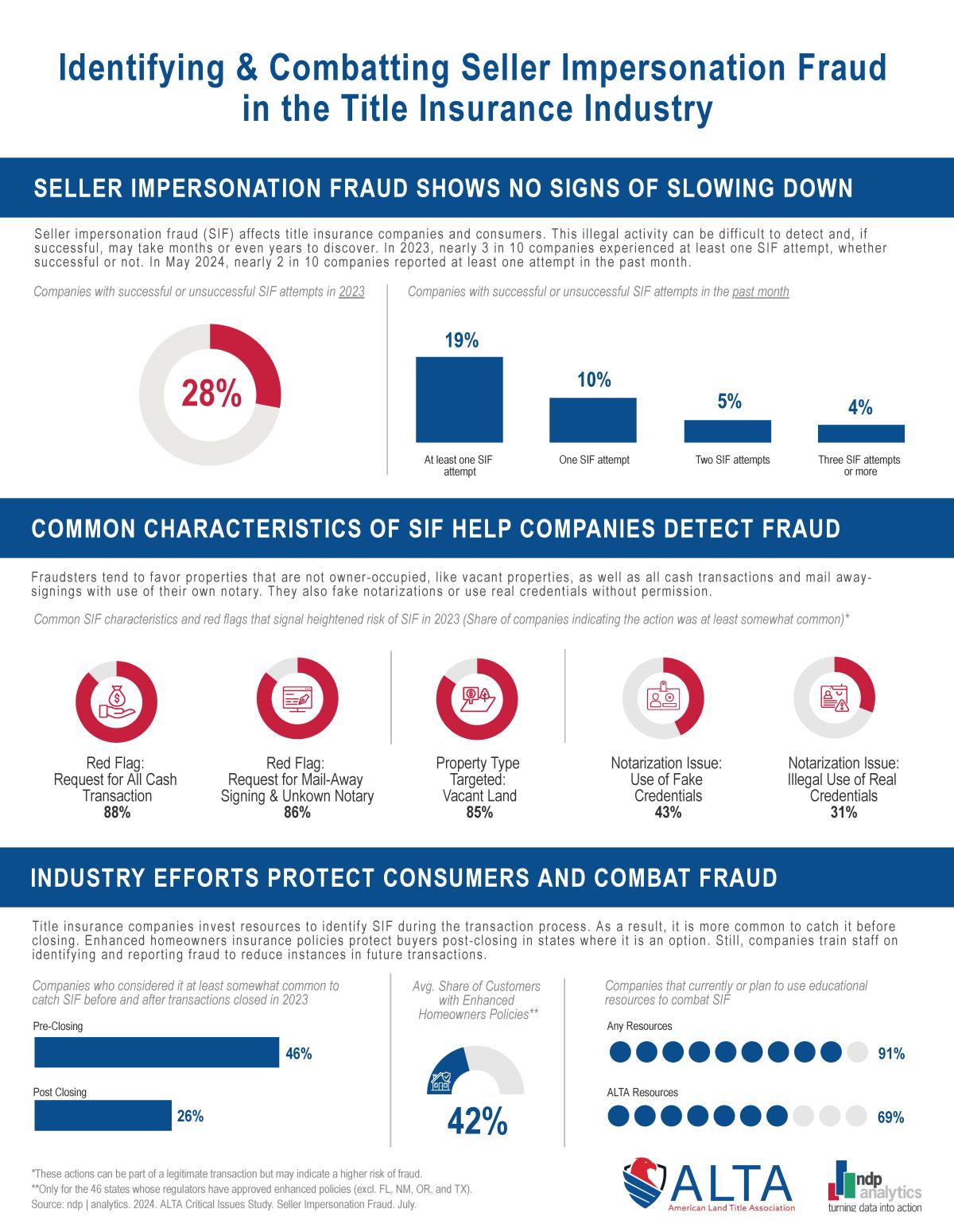Seller Impersonation Fraud Attempts Increase, Study Shows
July 30, 2024
 Seller impersonation fraud attempts continue to increase as 28% of title companies experienced at least one of these incidents in 2023, according to a study conducted by ndp | analytics.
Seller impersonation fraud attempts continue to increase as 28% of title companies experienced at least one of these incidents in 2023, according to a study conducted by ndp | analytics.
The study, which included responses from 783 title companies across the United States, also showed that two out of 10 title companies experienced a seller impersonation fraud attempt in April 2024.
While threats increase, the study found 91% of title companies currently provide or plan to provide education and resources to train employees on fraud. These actions are critical to combatting all types of fraud, including seller impersonation fraud, wire fraud and elder financial exploitation.
Importantly, seller impersonation fraud often is caught before the real estate closing is completed. The study showed that in 2023, 46% of companies said identifying and preventing fraudulent transactions before closing was at least somewhat common. To compare, only 26% of companies reported it was somewhat common to catch the fraud after closing.
Both the ALTA Owner’s Policy and ATLA Homeowner’s Policy cover buyers who fall victim to pre-purchase forgery. The ALTA Homeowner’s Policy also protects against a third party who fraudulently transfers the owner’s property in the future. For companies in the 46 states where regulators have approved these enhanced policies, 42% of customers, on average, chose policies that protect their property from forgery, including seller impersonation fraud, in the future. In 2023, 16% of title companies paid claims on transactions involving seller impersonation fraud.
Common characteristics of seller impersonation fraud include notarization issues and use of a property owner’s legitimate non-public personal information. The most common notarization issues were fake notary credentials (43%) and use of real notary credentials without permission (31%), according to the study.
Vacant land at 85% was the most targeted type of property last year, followed by vacation homes (37%), rental properties (37%) and agricultural land (23%).
In 2023, most companies that experienced attempted fraud reported cash transactions held a higher risk of seller impersonation (88%), followed by requests for mail-away signing and use of an unknown notary (86%), instances where there was no existing mortgage or encumbrance on the property (84%) and refusing to take voice or video calls (83%).
Resources
- Seller Impersonation Fraud Study
- Seller Impersonation Fraud Infographic
- Educational Handouts for Companies and Consumers
Contact ALTA at 202-296-3671 or [email protected].